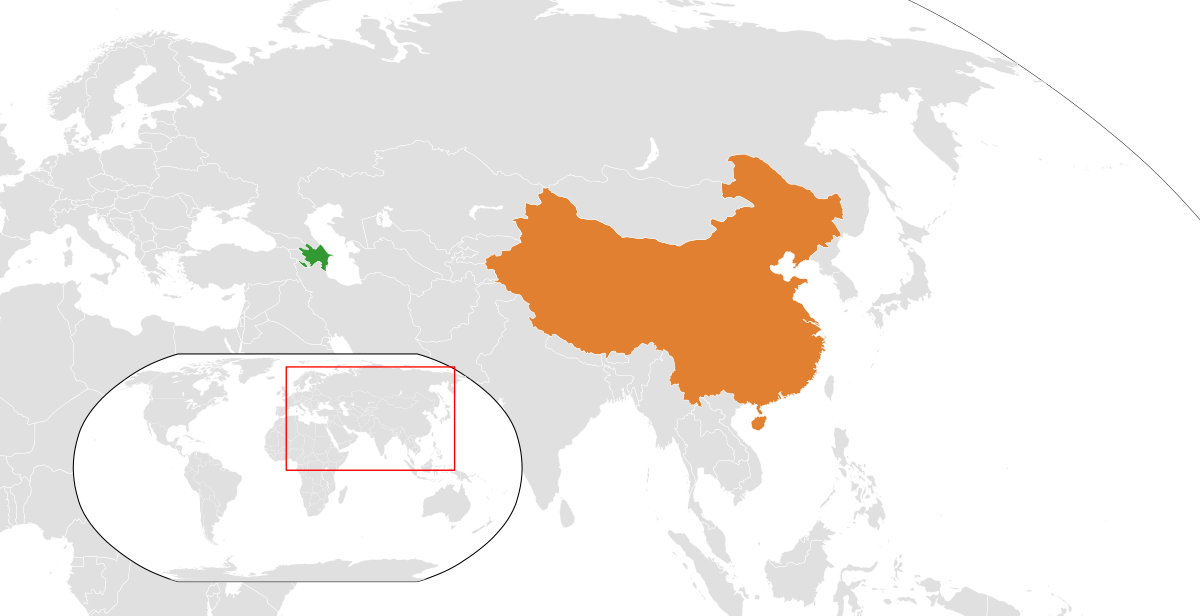Azerbaijan and China have many mutual interests, but Baku isn’t completely aligned with Beijing
Azerbaijan, located at the boundary of Eastern Europe and West Asia, has growing trade and political ties to China but the Transcaucasian nation isn’t going all-in on the Belt and Road.

Our weekly explainer series, China Ties, looks at China’s relationship with different countries of the world.
After just 24 hours of fighting last week, Azerbaijan finally took control of the disputed region of Nagorno-Karabakh — internationally recognized as part of Azerbaijan, but populated by Armenians who declared themselves an independent state back in 1991. Azerbaijan has been trying to bring them to heel ever since.
China’s Taiwan dilemma makes it a sympathetic ally: Although the Chinese Foreign Ministry has made no comment on this recent skirmish, Beijing has consistently sided with Azerbaijan over the region. In 2015 Azerbaijan pledged to recognise Taiwan as part of China, while China recognized that Nagorno-Karabakh was part of Azerbaijan. Both countries promised not to participate in any alliance undermining the territorial sovereignty of the other. Indeed, in July this year President Ilham Aliyev told China Media Group that territorial sovereignty was one of the biggest ways the two countries aligned.
As to money and trade, there’s a lot of hype — Azerbaijan’s Deputy Prime Minister once boasted that his country was China’s key trading partner in the South Caucasus region, making Azerbaijan a potential springboard for China into a traditionally Russian sphere of influence. But “there are no massive investments [from China] into Azerbaijan,” says Dr. Anar Valiyev, Professor of International Studies at ADA University, Azerbaijan.
Official figures have not been updated since 2018, which recorded China only having $800 million invested into the country. IMF data also shows China coming third in Azerbaijan’s imports, behind Turkey and Russia, and 31st in Azerbaijani exports — a major trade imbalance in China’s favor of over $2 billion.

Republic of Azerbaijan
Founded: October 18, 1991
Population: 10.4 million
Government: Constitutional Democracy (de jure), Dynastic Dictatorship (de facto)
Capital: Baku
Largest City: Baku
Established relations with the PRC: April 2, 1992
But the trade winds are blowing Azerbaijan’s way nonetheless: Russia’s war in Ukraine has settled Azerbaijan right in the middle of China’s ‘Middle Corridor’, a Plan-B Silk Road carrying goods from China to Europe. After a lull in the pandemic, Valiyev says the Middle Corridor has opened ‘new horizons for development’, with both the EU and China vested in creating transport links that bypass Russia.
Chinese interest began in 2013, with Xi’s launch of the BRI. President Aliyev, keen to bolster the country’s infrastructure, visited Beijing in 2015 and signed his country up. The Caspian Policy Center noted a 28,190% increase in Chinese financial commitments between the year before the BRI, and the year after. That included a $600 million loan for a pipeline transporting gas from Azerbaijan to Europe, and later arms deals and mutual military aid.
Yet unlike most BRI partners, China is not the keystone to Azerbaijan’s plans, more a useful support. The nation has funded most of its major infrastructure projects itself, which were announced way back in the mid-2000s, long before the BRI.
This included a major port on the Caspian sea in 2015, and a railway connecting it to Georgia and Turkey (which became operational two years later). Statistics aren’t available for how much Azerbaijan has paid overall for the two projects, but China has only played a small part — the port is estimated to have cost $544.74 million, of which Chinese grants came to $70 million. Some analysts argue it is Azerbaijan’s ability to access its own funding which gives it the second-shortest implementation time for BRI projects.
These two projects (plus a cargo shipping route across the Caspian) are meant to transform Azerbaijan from an oil and gas behemoth into a Eurasian transport hub, capitalizing on their location for a shorter route to Europe than through wartime Russia. The port has seen a steady increase of traffic for at least the past two years, and Azerbaijan has committed, along with other countries along the route — Kazakhstan, Georgia and Turkey — to increase cargo hauled by ten times by 2025.
China and Azerbaijan have continued to push the relationship in recent years, signing contracts on the sidelines of the second BRI forum in 2019 worth $821 million. Azerbaijan is still oil-rich and developing, with Chinese energy companies hungry for opportunities in electricity production. China’s ambassador to Azerbaijan said this month that Chinese contractors had been hired to build Azerbaijan’s first large-scale renewable power stations.
Chinese state media has also been a handy ally, giving extensive airtime in interviews to let President Aliyev vent about biased Western media, praise the BRI, plug Azerbaijan to Chinese tourists, and boast how many pull-ups he can still do at age 60.
But for all the mutual goodwill and joint support over territorial integrity, Azerbaijan is not completely aligned with Chinese interests — for example, it isn’t on the list of countries that signed UN statements supporting China’s rights of “territorial integrity” to treat Hong Kong, Tibet and Xinjiang as it pleases. Azerbaijan ‘usually follows the Turkish path’ on Chinese human rights violations, says Dr. Valiyev.
The relationship between the two is growing, but for now, Azerbaijan is charting its own course.







